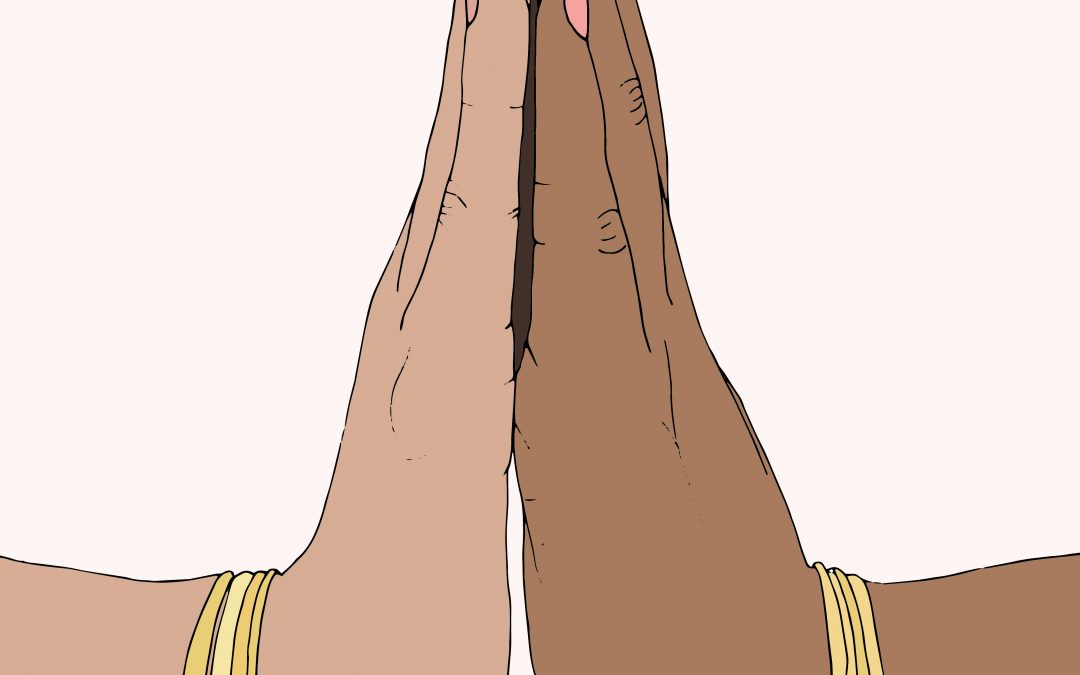The last few weeks have been particularly painful for Americans. On one hand, we are in the middle of a global health pandemic, and on the other hand, we are protesting against police brutality and systemic racism. Nevertheless, it is important that we safely protest against police brutality and racism. My experiences as an Indian immigrant is not the same as African-Americans, who still battle institutional racism (in the form of police brutality, mass incarceration, etc.) which are remnants of egregious practices like slavery and segregation. Nevertheless, the recent events have prompted me to reflect on my own personal encounters with racism.
Foreign families who migrate from Asian countries and other parts of the world to the United States also experience brutal racism (https://nbcnews.to/3hhXZfB). As an Indian immigrant who came to the United States at the age of four, my family and I have experienced racism many times. This issue was not treated with the same seriousness in the 1980s and 90s as it is today. In today’s time, it is more common for people to express outrage over prejudice and discrimination, and the use of social media makes it easier than ever to spread awareness of it.
As a brown-skinned immigrant, I am very well aware of how painful it feels to be on the receiving end of racial slurs. I remember in school, other kids made fun of my funny foreign name, mocked my family’s Indian accent, sarcastically told me to work at 7-11, and constantly teased me because I supposedly smelled like curry. Many times, my family and I have been called ‘sand n******,’ accused of being illegal immigrants, and have been told to learn how to speak English and “go back to your own country.”
These comments are just downright cruel and hateful. I am sure the majority of South Asian Americans have experienced similar comments, as these are not isolated scenarios. But prejudices are not solely an American phenomenon. When I look at the country I was born in, India, it bothers me how much discrimination and segregation still exists within their own society based on skin color and caste alone.
Although the caste system is technically illegal, the society still follows it socially. India still has many hate crimes, violence, discrimination, and segregation based on social class, caste level, and colorism. People in India can be very prejudiced against their own people. Due to a combination of different reasons, mainly India’s history of British colonization, light skin is considered beautiful. During British rule in India, British officials were notorious for demeaning dark-skinned Indians, and even favored giving jobs to Indians who were light-skinned.
Colorism is a big social issue there, as some regressive people are obsessed with light skin, and biased against darker faces. The preference for light skin is particularly emphasized for Indian women. Even for matrimony, it is not important how dusky a man is. But no matter how educated and successful a woman is, she will be rejected for being dusky.
TV shows, movies, and advertisements all reinforce the idea that “fair is beautiful.” No wonder India’s skin lighting business is a multi-billion dollar industry. One thing I noticed in the news this week is that many A-list celebrities in India expressed support for the Black Lives Matter movement on social media. While their support is commendable, I also want to call out their bullshit hypocrisy around this. A lot of these A-listers remain silent on domestic social issues, yet speak out in support of an incredible American movement like Black Lives Matter. Many of these A-listers even endorse skin lightning products and cosmetically bleach their skin so they can get more work in Bollywood, and somehow be considered more ‘glamorous.’ It is obvious (and hypocritical) that they are supporting the Black Lives Matter movement for PR reasons to get work in Hollywood, and to be in good graces with the American society.
We still have a long way to go to end colorism not only in the United States and India, but all around the world. This is such an important and ongoing topic that it won’t fit in just one blog post. But we still need to have these tough conversations, especially to educate those who are in a position of ‘white privilege.’ I do understand that there is a difference in being racist vs. ignorant. Obviously, there are people who genuinely are racist and hateful towards others. On the other hand, there are also a lot of people who are not hateful at all but have a lot of ignorance about someone else’s background. Nevertheless, we must challenge our own ignorance by educating ourselves on social issues, even if it does not directly affect us.
Thanks for reading!



You said it beautifully!!!!! Brought back so many of my own experiences and hurtful memories. Not just in America but also when I was in India. I truly agree that EDUCATION is the answer to almost of issues! Thanks for sharing
You hit the nail on the head! Beautifully written. Thank you for sharing.
Thanks for sharing your thoughts on this issue. Prejudice and Racism are the ills that killing the human race on a global spectrum.
Courageous conversation with love and empathy must take place.
We have to stop being afraid of one another. The only way to tackle that is to have a conversation and break bread with one another. We will see and enjoy the true beauty of the Global Spectrum.
Thanks, Agatha!! Appreciate the feedback. Sorry for the delay, by the way! I just noticed several comments went to the spam folder.
I really like examining and I conceive this website got some genuinely useful stuff on it! .
You made a number of fine points there. I did a search on the theme and found most people will have the same opinion with your blog. Maurise Freddie Chandos
I am regular reader, how are you everybody? This piece of writing posted at this web site is really good. Marcy Nels Estrellita
Way cool! Some extremely valid points! I appreciate you writing this write-up plus the rest of the site is really good. Laurella Myron Posner
Another awesome post! Keep up the good work. So well written, funny, and REAL. Great stuff! Orel Bradan Summer
Im grateful for the post. Much thanks again. Really Great. Briney Farlay Ingar
I visited many blogs except the audio feature for audio songs existing at this web site is actually marvelous. Camel Brew Bazil Gui Marcos Dorette
This is just the perfect answer for all forum members Dannye Korey Hamo
I do trust all of the ideas you have introduced to your post. They are very convincing and can certainly work. Still, the posts are very quick for newbies. May just you please lengthen them a bit from next time? Thanks for the post. Stephenie Adolphe Michail